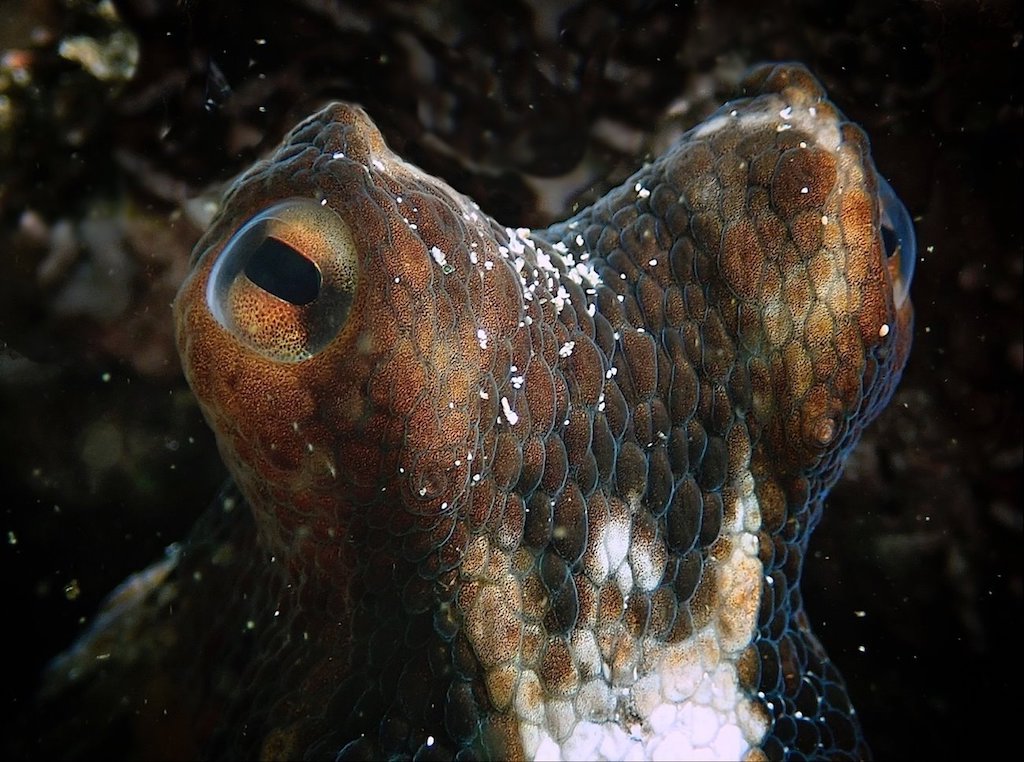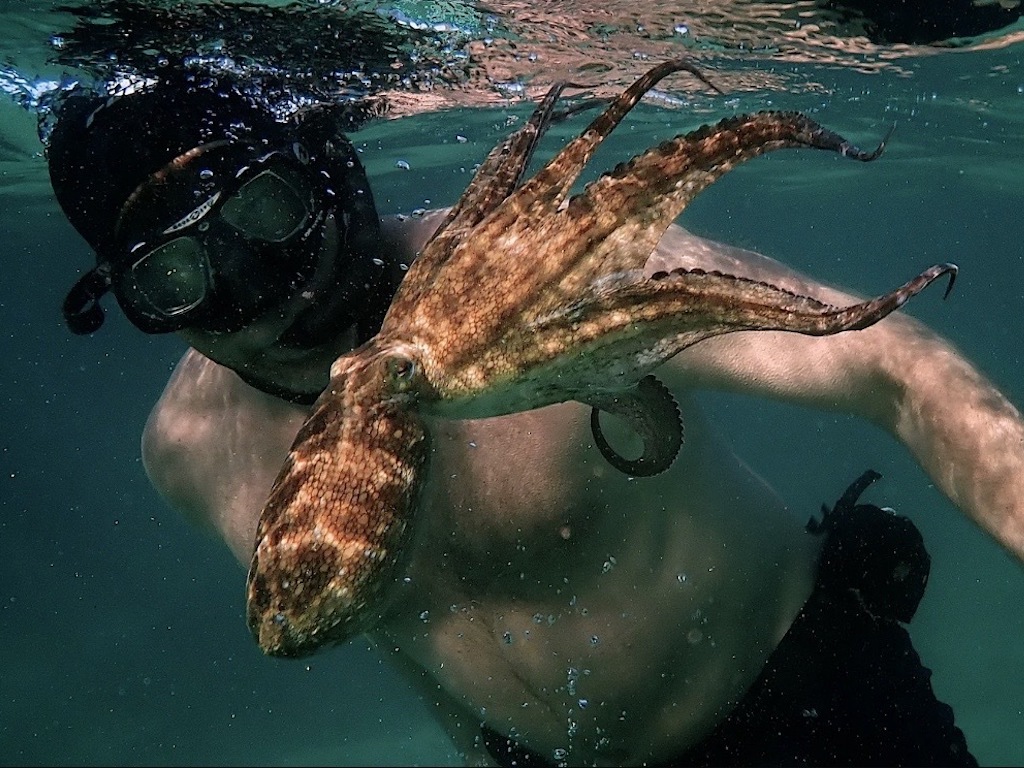4 Mins Read
My Octopus Teacher is a nature documentary unlike any I have ever watched. It follows Craig Foster, an experienced diver and filmmaker, on his yearlong journey of friendship with, of all things, a wild cephalopod. I had few expectations going in, not having read anything about it or its makers, but the film took my breath away and stole a piece of my heart. Foster discovers an octopus in a patch of African Sea Forest that he has taken to swimming in everyday and becomes enchanted by the charming, intelligent and brave creature, immersing the viewer into this alien-like universe of life, survival and sacrifice. The film is presented as nothing more than this tenderly told story. And yet, this quietly elegant, visually astounding documentary is the most compelling and powerful oeuvre about the climate crisis and our relationship with the natural world that I have seen in years.
To begin with, My Octopus Teacher is incredibly meditative. It’s not going to surprise anybody to learn that staring at vivid filmography of the underwater world is mesmerising, calming and incredibly comforting. This is the first time in months I was able to sit through something on a screen without checking my phone. Yes, I have a problem. (Don’t we all?) Gazing at the multi-coloured sea creatures floating, diving, jumping, soaring and generally going about their underwater life business is an exercise in mindfulness. So if anything, watch the film to get a mental time-out. It’s the prayerful distraction you need during this exceptionally terrible year we’re living through.
The film is also a celebration of the natural world: it’s hard not to be almost stupefied at how astoundingly beautiful and magical nature in all its glory really is, not to mention be repeatedly amazed by the intelligence and resilience of the octopus Foster is so taken by. The filmmakers barely need to try to captivate you (though the cinematography is award-worthy for sure, kudos to Roger Horrocks)- the imagery and sea life activity draw you in and transfix you. Sharks, fish, octopuses, crabs, lobsters, anemones, coral, seaweed- it’s all so ‘awesome,’ in the most true sense of the world.
My Octopus Teacher was at times painful for me, and I found myself tearing up more than once, not only because of the natural world’s power to overwhelm emotionally (the sheer beauty can engulf you), but especially given that scientists and living legends are sounding the alarm as loudly as they can about the horrifying amount of species extinction happening right now- we’ve got blood on our hands, my fellow humans. How much longer do areas like Foster’s wondrous forest have left, given how hellbent we are on destroying nature in the pursuit of ‘stuff’?

The film is a sort of love story between Foster and the octopus he follows daily for almost a year in the freezing waters and kelp forests on the tip of the Cape of Storms off the South African coast. It’s incredibly moving to watch him return to the same small part of the ocean world, day in and day out, and learn as much as he can about every creature and every piece of wildlife he is surrounded by, and see his relationship with the octopus develop (the first time the creature reaches a timid tentacle out to Foster’s finger is heart-wrenchingly affecting. The experience brings him back to life after a period of melancholy and dispiritedness. This was another major takeaway for me: the power of the natural world to restore our broken souls. I have long believed in the healing power of nature and wholeheartedly subscribe to the Japanese doctrine of shinrin-youku. My Octopus Teacher takes it a step further: we have so much to gain from being in nature and observing it, but more than that, we need nature more than we ever have.
There are other nature documentaries worthy of your time (Our Planet by Sir David Attenborough comes to mind) and the story of man forging a relationship with a wild animal is nothing new, but this may be the first time a human and an octopus are captured developing real tenderness for each other. And herein lies the film’s low-key revolutionary message: imagine how many other species exist out there that we have yet to truly connect with, the way Foster and the octopus do?
The ending of the film is particularly poignant (spoiler ahead) given that octopuses essentially sacrifice their lives in order to procreate. I could not help reflecting on how we humans are doing the opposite: we are sacrificing our children (and theirs) and hedging their futures for our own selfish desires in this lifetime. We arrogant homo sapiens are an undoubtedly brilliant species, but we have much to learn from our ocean neighbours. May this film be an important reminder to do so.
My Octopus Teacher is streaming now on Netflix.
Lead image courtesy of Sea Change Project.




